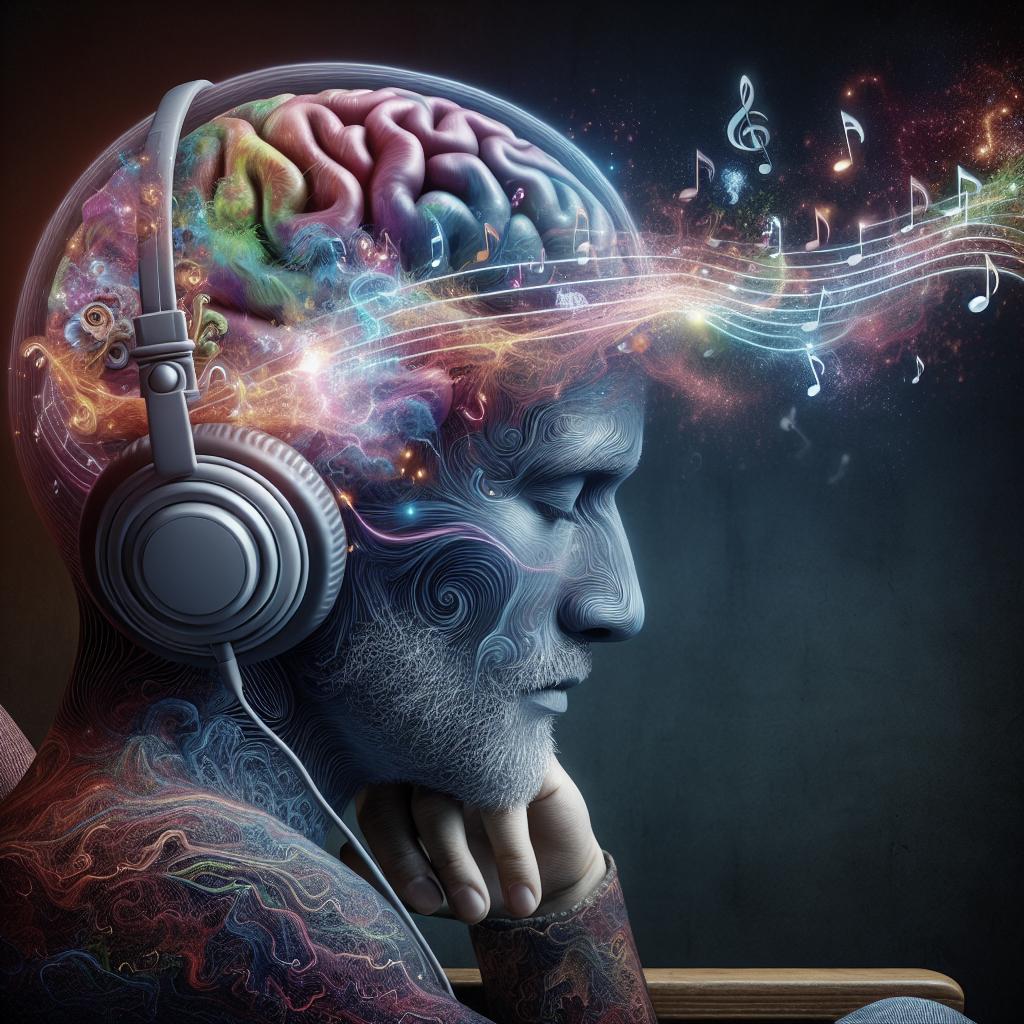“`html
The Impact of Music on Mental Health
Music is a universal language that transcends boundaries and affects us on multiple levels. It can enhance our quality of life by influencing our emotions and altering our mood. As we explore the complexities of music, we understand its profound connection with mental health. From managing stress to improving cognitive functions, music plays a crucial role in enhancing mental well-being. This article delves into how music can be an effective therapeutic tool, highlighting various music therapy methods. Finally, we’ll explore the diverse tools used in music therapy and summarize the key takeaways on the subject.
How can music impact our quality of life?
Music has the ability to enrich our lives by connecting us with emotions and memories that define our very being. It can elevate our mood, reduce stress, and provide an emotional outlet that can be essential for mental health. Whether it’s a soothing classical composition or an energetic pop song, music has an immeasurable impact on how we feel and experience the world around us.
Music can serve as a catalyst for personal expression and creativity. Engaging with music—whether it’s listening to a favorite track or playing an instrument—can foster a sense of accomplishment and self-worth. By influencing our emotional state, music can positively contribute to our overall quality of life, promoting happiness and reducing anxiety and depression symptoms.
Complexities of music
The complexities of music lie in its ability to reach different aspects of the human psyche. From rhythm and melody to harmony and dynamics, music is a multifaceted form of art that interacts with our minds in unique ways. These elements work together to create an auditory experience that can evoke a wide range of emotions.
Moreover, individual preferences and cultural backgrounds can significantly influence how music affects a person. While a certain genre may be uplifting for one person, it may not resonate the same way for another. Understanding these complexities is key to recognizing music’s potential in impacting mental health, as it can tailor interventions to individual needs and preferences.
How can music be used as a therapeutic tool?
Music therapy is an evidence-based practice that harnesses the power of music to address various health concerns, including mental health disorders. By strategically using music in therapeutic settings, professionals aim to improve emotional and mental well-being. Techniques such as guided listening, songwriting, and playing instruments are commonly used to foster healing and self-confidence among clients.
Studies have shown that music therapy can reduce symptoms of anxiety, depression, and PTSD, and assist individuals in processing grief or trauma. By providing a non-verbal means of expression, music therapy allows individuals, especially those who may struggle with traditional forms of communication, to express and process their emotions effectively.
My top music therapy tools
One effective music therapy tool is guided imagery and music, where a therapist helps individuals visualize images while listening to music. This technique can evoke deep emotions and promote relaxation and self-awareness. Another powerful tool is rhythmic entrainment, where individuals synchronize their movements or heartbeat to the rhythm, aiding with focus and physical coordination.
Songwriting is also a significant therapeutic method, empowering individuals to articulate their feelings and thoughts creatively. Crafting lyrics and melodies allows individuals to explore their emotions in a structured manner, fostering personal insight and emotional release. Combining these tools, music therapy can provide comprehensive support for various mental health needs.
The bottom line
Music holds undeniable potential as both an art form and a therapeutic tool. By affecting the brain and emotions, it can enhance our mental well-being and improve our quality of life. Whether through organized music therapy or personal enjoyment, engaging with music offers a pathway to a healthier and more fulfilling life.
Ultimately, the impact of music on mental health is profound yet personal, making it a versatile resource for emotional support and healing. Embracing music in daily life can lead to newfound emotional balance and resilience, illustrating its capacity as a powerful means of psychological transformation.
Disclaimer
While music therapy can be beneficial, it is not a replacement for professional medical or psychological treatment. Individuals experiencing serious mental health issues should consult with healthcare professionals to receive comprehensive care. Music therapy may complement traditional treatment methods but should not be considered a standalone therapy.
Summary of main points
| Aspect | Details |
|---|---|
| Impact on Quality of Life | Music can elevate mood, reduce stress, and enhance emotional well-being by providing a means for personal expression and connection. |
| Complexities of Music | Music’s interaction with the human psyche varies, with preference and cultural background influencing its emotional and therapeutic impact. |
| Therapeutic Uses | Music therapy employs various techniques like guided listening and songwriting to improve mental health and facilitate emotional expression. |
| Music Therapy Tools | Effective tools include guided imagery, rhythmic entrainment, and songwriting, each catering to different therapeutic needs and outcomes. |
| Considerations | While impactful, music therapy should complement other medical treatments and is not a replacement for professional care. |
“`
